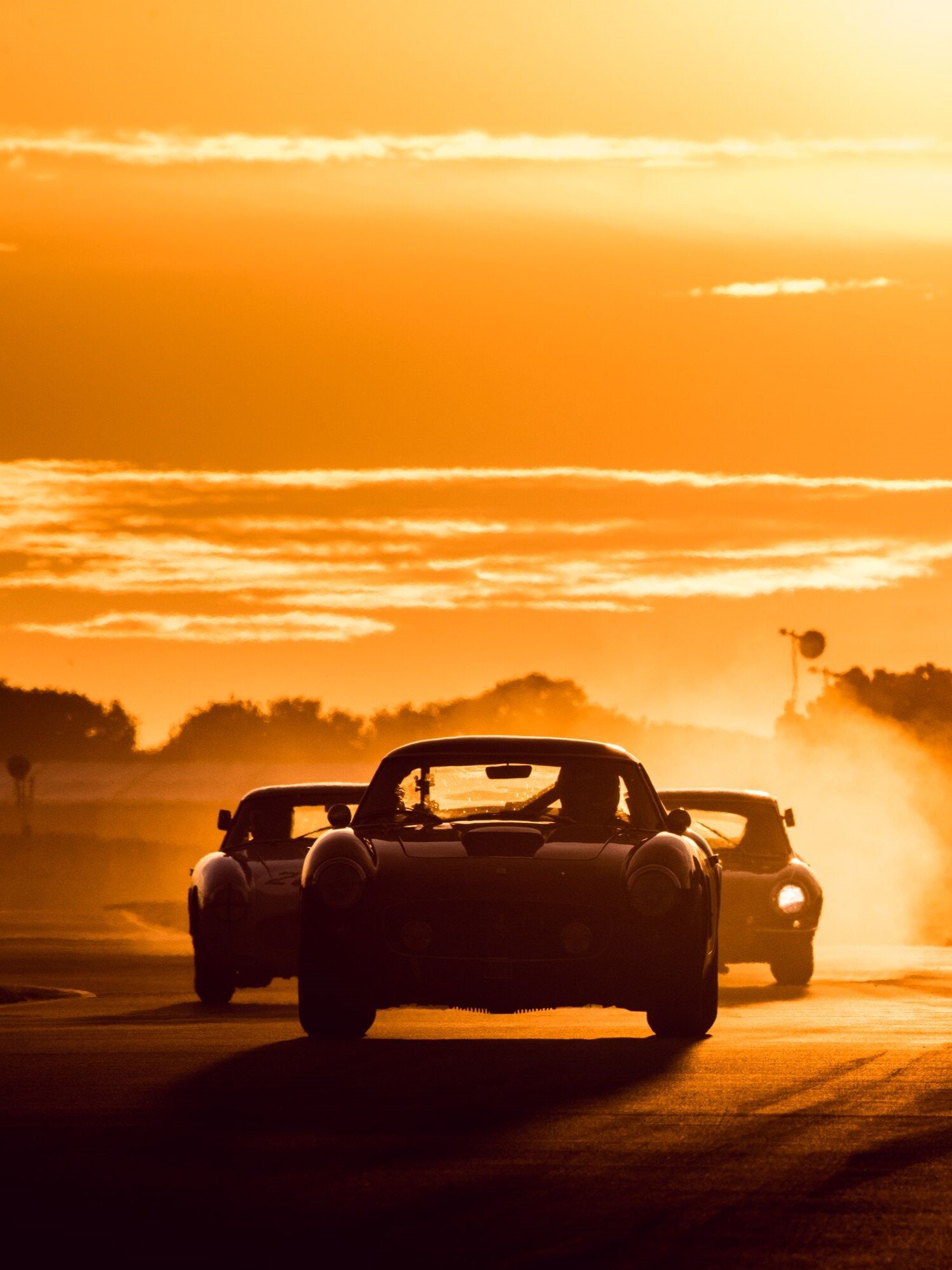2024 Monaco Grand Prix | 8 talking points
Charles Leclerc banished talk of an alleged home-race curse with a carefully controlled drive to victory at the Monaco Grand Prix, on a weekend when the most famous race of them all was called into question as a venue suitable for the modern era – yet again. Here are the main talking points from the slightly tarnished jewel in F1’s crown.

Leclerc scores the biggest win of his life
He admitted there were tears in his eyes towards the end. But from his third pole position in Monaco Leclerc wasn’t about to let this one slip. Back in 2021 his own mistake in qualifying meant his first home pole was wasted, then Ferrari’s strategic howler in 2022 cost him again. But this time nothing could stand in the way of a driver described as “not reachable” by his opponents from the first practice session onward.
The early red flag even played into Leclerc’s hands. Free to switch from the medium Pirellis he’d started on to the hard compound, the 26-year-old didn’t even have to make a pitstop as he controlled the race from the front to beat Oscar Piastri’s McLaren by 7.1sec. It marked a sixth F1 victory for Leclerc, his first since Austria in 2022 and surely the biggest and most emotional of his career so far. He dedicated it to his beloved father, who Leclerc lost to cancer a year before he made it to F1.

Senna livery not quite enough for McLaren
The yellow colours inspired by Ayrton Senna were a nice touch from McLaren, as another tribute to the great Brazilian 30 years after his death. But they weren’t quite enough to lift Oscar Piastri and Lando Norris into contention to beat Leclerc and Ferrari.
After a couple of races where Norris has hogged the limelight, Piastri hit back in Monaco by qualifying a close second to Leclerc. Given the impossible nature of this track, a maiden grand prix victory remained a tall order even from the front row of the grid. But still, second around these streets, two places ahead of Norris, should leave Piastri with a sense of satisfaction – even if it’s mixed with a hint of frustration.

Sainz handed reprieve to claim third
Carlos Sainz Jr can count himself lucky that he was able to claim his fourth podium of 2024, which includes his win in Australia. The Spaniard tagged Piastri after the start and skated off at Casino Square with a puncture – only for the red flag to win him a reprieve. The stoppage came just in time to allow the second Ferrari to once again line up third on the grid for the restart and - in a common theme at Monaco, that’s where he stayed until the end. Sainz’s dose of luck annoyed Norris who understandably felt aggrieved by the rule. But it’s hardly something new in motorsport and isn’t about to change. Most drivers are likely to benefit from such a break at some point in their careers.

Violent crash deemed a racing incident
The red flag was caused by a clash that Nico Hülkenberg rightly judged as unnecessary. After his dire qualifying effort (again), Sergio Pérez started way down in 16th and on the run up Beau Rivage on the climb to Massenet, the Haas of Kevin Magnussen took a highly optimistic look up the Red Bull’s right-hand side. Pérez appeared to see him coming but kept to his line thinking the move wasn’t on – which it wasn’t. But Magnussen, being Magnussen, wasn’t about to back out. The clash slung the Red Bull across the track and into a heavy impact, with Hülkenberg’s Haas tagged along the way.
Both the American-owned cars were out along with Pérez’s sorry looking Red Bull, and with masses of debris scattered everywhere a red flag was the only sensible decision. The same can probably be said of the stewards’ call to deem it a racing incident, meaning neither Pérez nor Magnussen faced sanction. But even without apportioning fault, it was still a daft accident on a piece of track where overtaking just isn’t conceivable – at least with this oversized generation of F1 cars.

Ocon unpopular with Alpine boss
Another early collision left Esteban Ocon also sidelined after he clashed with his Alpine team-mate Pierre Gasly. These two have plenty of history, but had appeared to have put their differences aside to help the French-owned team lift itself from its current uncompetitive plight. Not in Monaco though. Gasly reckoned there had been a pre-race agreement for the two blue cars not to fight, that the second should support the first. But perhaps Ocon hadn’t been listening. The incident triggered an uncharacteristic eruption of fury from usually sanguine team boss Bruno Famin, who spoke of “consequences”. Ocon’s time at the team is expected to conclude at the season’s end anyway. Perhaps it might be curtailed even earlier if he doesn’t play carefully on and off track in the coming days and weeks ahead.

Verstappen down in sixth
And what about Max Verstappen? The triple world champion qualified off the pace in sixth and that’s where he finished, despite giving his all after a tyre stop and then closing on George Russell’s Mercedes for a late attack. It probably would have worked anywhere other than at Monaco. But almost anywhere else it’s unlikely he would have found himself needing to fight for fifth. The trouble is, bumpy street tracks are an Achilles’ Heel for the stiffly sprung Red Bull – yes, even this team has one, as we saw in Singapore last year, the only race Verstappen lost in 2023.
The Monaco result means Leclerc has closed the gap to Verstappen to 31 points in the drivers’ championship, although the Ferrari ace understandably played down talk of a title challenge. Way too early. Then again, the reigning champion was defeated by McLaren in Miami, run close again at Imola, and off the pace in Monaco. Let’s be careful not to jump the gun – but Red Bull is certainly facing more pressure and a higher challenge than it has for a while.

Driver market latest
Yuki Tsunoda once again showed off his new-found consistency with another fine points finish: eighth in Monaco behind Lewis Hamilton but ahead of Ocon-clash survivor Pierre Gasly and Alex Albon – who scored the first points of the year for Williams. On this basis, again, why isn’t Tsunoda in with a shout to join Verstappen at the Red Bull A-team next year? Whatever the answer, it seems promotion from the RB squad really isn’t on the cards – with Pérez now looking set to remain for 2025, despite his poor run of form.
That’s the latest talk on the intriguing driver market – and Pérez is the key pawn in this game. Sainz’s strong start to the season seemed to lift him into contention to replace ‘Checo’ at Red Bull next year, but that now appears to be off the table. Instead, Sainz looks to have a choice of playing the long game by joining Sauber ahead of its 2026 transformation into Audi, or, if stories from Monaco are to be believed, taking a chance on pairing up with Albon at Williams. On the face of it, Ferrari to Williams is a significant step down. But team boss James Vowles has already convinced Albon to buy into his vision that aims to push the team back up the grid. Might Sainz buy in too?

F1 proves what we already know
Nelson Piquet came up with a famous quip back in the 1980s about this circuit equating to riding bicycles around living rooms. But as the Grand Prix de Monaco Historique highlighted a couple of weeks ago, at least back then F1 cars were in proportion with this tightest of environments. Now they are simply too big. But does that mean F1 should abandon its most famous race? Is that old sacrilege really so blasphemous today? Back at the Historique meeting, McLaren chief Zak Brown summed up the general opinion: “Realistically [modern F1 cars] have outgrown it, yes,” he said. “We have a race where they can’t pass and you can be three, four, or five seconds slower and they still can’t get by you.
“But it’s Monaco so we make an exception.”
Images courtesy of Motorsport Images.
F1
Formula 1
F1 2024
Talking Points
Monaco Grand Prix
Charles Leclerc
Ferrari































































